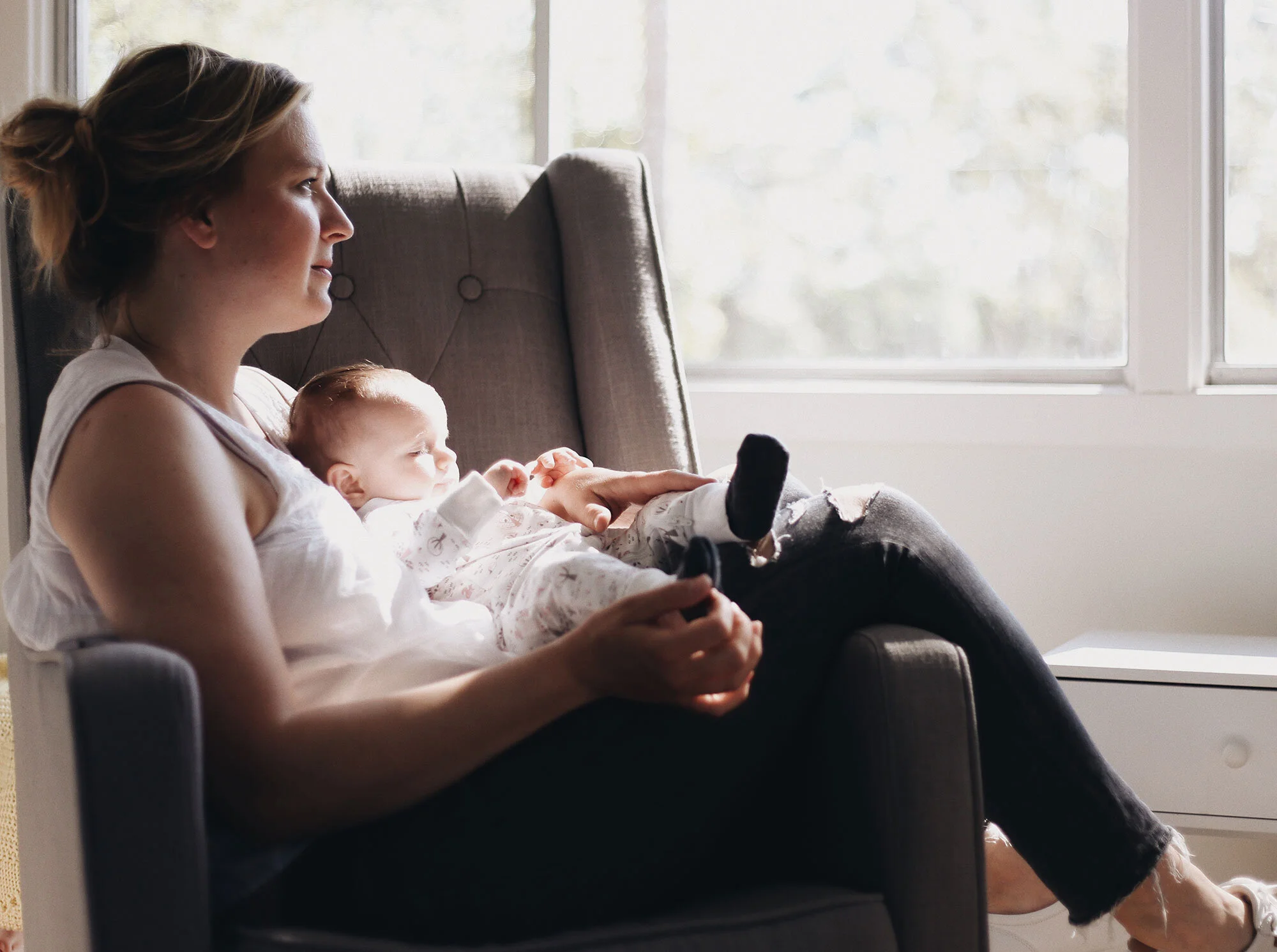
Blog
First we connect, then we communicate
Hi everyone, meet Kim
Meet… Kim! All around amazing speech therapist, mama to twin girls and a proud big brother, wine connoisseur and a great friend. In fact, when Maia says goodnight to the people she loves every night, this gal is on the list and we have her to thank for the beautiful sound of Maia’s bilingual voice.
I often pinch myself how lucky we are to have this outstanding speech therapist as part of our village, and… Well, with Kim’s latest upgrade to her Instagram, she can be in yours too! Simply pop over to @learngrowspeech and check out her highlight reel for amazing insight into all things speech and communication. And below, she shares her insight into the communication strengths of children with DS and the best tip that I’ve ever seen for that scrumptious, precious first year with our little ones.
What would you say to a parent on their entry to #theluckyfew community?
Firstly, congratulations on your baby!! If you're here and seeing this then you have an adorable ticket into a pretty amazing community. Secondly, the most important thing you can do for your new little person right now is simply to get to know them and plant all those seeds for love and connection. Babies learn about communication through their relationships - so relax and just focus on building that special relationship. Take notice of what makes your baby light up – this will be the foundation for everything you put in place later.
“The cuddles, smiles and cooing over your cutie is A-grade quality therapy!”
Third, find the team that is a good fit for your family. Take the time to find the ones that make you feel confident, like you know what is going on and that you feel comfortable telling when things aren't working for you. Chat to potential therapists and get a feel for them as people - and don't feel bad about changing things up if someone isn't the right fit (we don't take it personally!). By starting this process early, you can get on the waitlist for the best people for you instead of just having to take whoever had a space. With the right team, "therapy" can feel like less of a chore and more like fun!
First we connect, then communicate…
Especially in the first year, simply being and interacting with your baby is the best thing you can do. It’s not the flashcards or toys that make a difference - it’s the silly voices and tickles in nappy changing. So… Relax, soak up those cuddles, get to know your baby’s personality and just enjoy each others company!
One of the reasons I love you is that you have such a strengths-based approach to your work (and life). While everyone is different with their own unique resources, are there any typical communication strengths that you see in the children with DS that you work with?
We ALL learn better when it starts from a place of things we already like and are successful with! Like you said, Children with Down Syndrome are like all other children in that they are more different from each other than the same, however, there are definitely some common strengths. If I was choosing one, it would be the desire and ability to connect and build relationships with people. Wanting to play, socialise and connect with other people is such a great foundation for building communication. It opens up a whole wide world of different learning opportunities.
“For every child, the best Early Intervention recipe is more of a Venn diagram. One circle is your child's strengths and interests, the other circle is the skills that we want to help them develop. That overlap in the middle is where the therapy magic happens”.
In those early days, one of my biggest fears came from a phrase that kept popping up on Google: "non verbal". It terrified me and sent me into a frenzy of learning everything I could about all things speech therapy. I wish I had known you then... And while I can't get those frantic nights of googling back, other parents can benefit from your wisdom! What is the most important thing to remember about language and communication?
Surviving night googling is almost a parenting rite of passage! BUT a lot of what Dr Google spits out is outdated information that won't apply to the majority of families today. Also, sometimes when people read "non-verbal", they translate that to "doesn't communicate". This couldn't be further from the truth! While my experience is that most children with Down Syndrome do learn to talk, talking isn't the only way that children communicate. They can communicate with sign language, gesture, picture systems and even speech generating devices to say what they want. Even without talking, we can have really fun, productive and meaningful interactions using all the other forms of communication. There's a Speechie saying that goes "not being able to speak is not the same as not having anything to say". These are words to live by!



